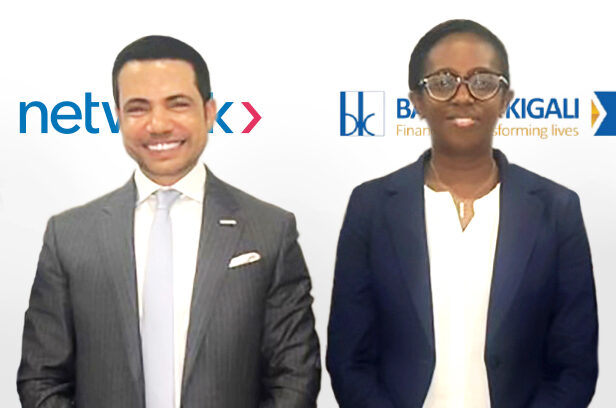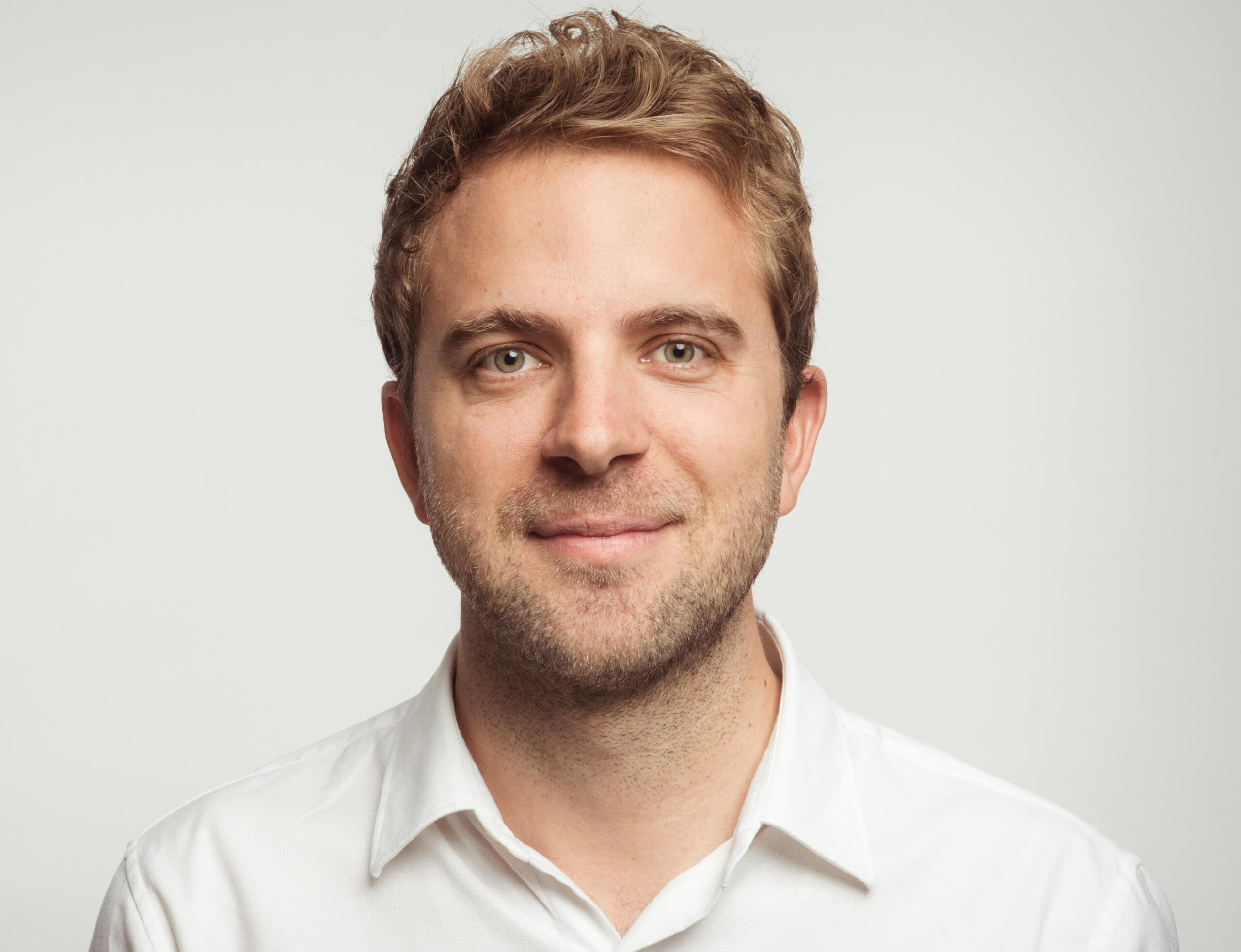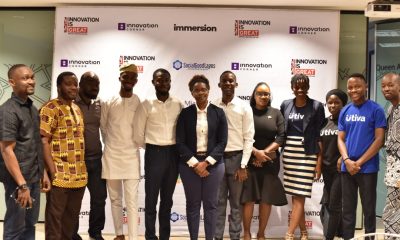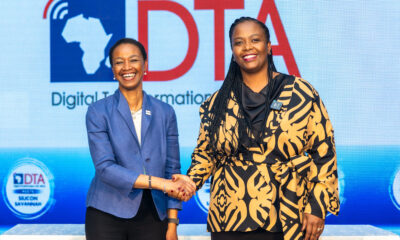Technology
Microsoft Airband to Connect nearly 40 Million People across Latin America and Africa

Microsoft Airband Initiative GM, Vickie Robinson (Article: Microsoft)
Microsoft is announcing new and expanded Airband partnerships set to provide high-speed internet access to nearly 40 million people across Latin America and Africa. These partnerships in Brazil, Chile, Colombia, Guatemala and Cote d’Ivoire, Kenya, Nigeria, Tanzania and Uganda mark significant progress in our commitment to extend high-speed internet access to 250 million people living in unserved and underserved areas around the world, including 100 million in Africa.
Across both Latin America and Africa, limited access to broadband can mean that people have fewer opportunities to develop the digital fluency and skills needed to participate in the digital economy.
At Microsoft, we believe that internet access and meaningful connectivity is a fundamental right. The Microsoft Airband initiative was launched to bring transformative connectivity to unserved and underserved communities around the world. Through the Airband initiative and its partners, Microsoft is serving as a catalyst to enable affordable access to connectivity, specifically focusing on regions with lower digital connectivity rates.
Connecting communities across Latin America
In recent years, about 37 percent of Latin Americans in rural areas have connectivity options, compared with 71% of the urban population. Airband together with Wayfree in Guatemala, Fundacion Pais Digital in Chile, Brisanet in Brazil, and Anditel in Colombia will deliver 18 million people with access to high-speed internet.
Latin America combines thriving urban cities and rural areas with vast cultural heritage sites, however, like most places, there are unique challenges in advancing connectivity in certain regions. With greater access to the internet, Airband through its partners, hope to address societal issues, such as employment and education that can be strengthened through greater connectivity.
- Brazil: Airband is expanding our footprint to Brazil, the largest market in Latin America, as part of our new partnership with Brisanet. Working with Microsoft and NGOs like Amigos do Bem and Mais Unidos, Brisanet will extend high-speed internet access to more than 11 million people and support social and economic development in low-income regions of the country.
- Chile: Fundación País Digital is a nonprofit organization working to develop Chile’s digital economy, expand connectivity, and improve digital literacy throughout the country. Through their newest initiative, Programa Conectando Territorios, Fundación País Digital will expand connectivity to rural and underserved areas in two regions: the Biobío Region in central Chile, which has been significantly impacted by earthquakes; and the Antofagasta Region, known for its mining industry. With Airband support, in addition to connectivity, the program will target economic opportunities through training and employing local community members to maintain the new networks and will bring internet access to an additional one million people by the end of 2025.
- Colombia: Our commitment with longtime partner Anditel to provide coverage for more than 600,000 people in five years has gone well ahead of plan. To date we have nearly doubled that target and are now expanding our partnership to cover an additional three million people by the end of 2025. Partnering with the Colombian government on ICT 360, the national connectivity program, Anditel aims to cover 85% of Colombians by 2026.
- Guatemala: Wayfree is the leading provider of Internet connectivity in Guatemala. They are deploying wireless access zones in towns and villages, already covering over 40 percent of the 340 Guatemalan municipalities with the goal of making universal wireless internet access a reality. Airband’s support will catalyze deployments in the remaining municipalities in Guatemala and ultimately provide three million people with access to high-speed internet coverage by the end of 2025.
Crossing the continent of Africa
Our efforts on the African continent are some of our most longstanding and farthest reaching. Today many African nations are rising economic powers, but on a continent with so many vast rural areas, delivering connectivity can be a challenge. On average Africa has a 40 percent internet usage rate. Partnerships are key to the success of the Airband model, and we are building upon our existing partnerships in Africa, including with Mawingu and Tizeti.
- Kenya, Tanzania, and Uganda: Microsoft Airband’s relationship with Kenyan service provider Mawingu began in 2014 with a pilot in Nanyuki and has since expanded to deliver high-speed internet access to four million Kenyans living in rural areas. Mawingu was Airband’s first partner, and thanks to the public-partnership model, today the company is Kenya’s leading internet service provider dedicated to rural and peri-urban markets. This latest expansion of our partnership with Mawingu will bring coverage to an incremental 16 million people across Kenya, Tanzania and Uganda by the end of 2025, ultimately covering a total of 20 million people.
Mawingu provides meaningful internet access to locations throughout Kenya, such as hotspots, vocational schools and businesses. Just one example of Airband’s partnership has resulted in the deployment of more than 700 hotspots and connectivity for more than 100 primary schools, enabling community members to access digital skills training and essential education materials. The company has also partnered with Unilever and Microsoft Philanthropies to provide access and skills to female entrepreneurs.
- Nigeria and Cote d’Ivoire: Airband partner Tizeti has brought coverage to more than 900,000 people in Nigeria, expanding from Lagos to focus on underserved states across the country. Microsoft and Tizeti are expanding this partnership to Cote d’Ivoire, a cultural crossroads of West Africa, to bring internet access to almost 5 million people. Given that electricity is frequently unavailable, insufficient or unreliable in many parts of Africa, this expansion of our partnership includes infrastructure support and deployment of eight solar powered towers to help provide connectivity to households, small businesses and hotspots. This access will empower greater access to education, healthcare, and employment.
Bringing more digital opportunities to more people
Through partnering with Microsoft’s Airband Initiative, organizations have additional support to create the infrastructure needed to provide connectivity support in many different ecosystems that ultimately drives self-empowerment and sustainable development and growth. These partnerships are essential in providing local expertise and experience to help achieve a greater goal tied to what can be harnessed with the support of connectivity.
As technology, like AI, advances, being connected provides a path forward to empower every person and every organization on the planet to achieve more.
Technology
Fawry and Roboost sign “MOU” to enhance digital transformation and financial inclusion

Fawry, the leading company in the field of banking technology and electronic payments, announced the signing of a joint cooperation memorandum with “Roboost“, a leader in developing delivery and logistics management systems, to automate payroll for home delivery couriers. The cooperation enhances the efforts of the digital transformation process and achieves the principles of financial inclusion in the delivery industry. The memorandum was signed in the presence of Mr. Hossam Ezz, CEO of the Commercial Sector at Fawry, and Mr. Mohamed Gessraha, CEO and Co-Founder of Roboost.
Within the framework of this joint cooperation, Fawry will provide delivery employees with myfawry yellowcards for convenient salary cashouts and empowering couriers with greater financial flexibility and control over their earnings, according to Roboost’s advanced solutions that manage the payroll data of more than 20,000 employees, based on detailed criteria, ensuring fair compensation based on specific aspects and eliminating the need for lengthy discussions with accounting teams.
The collaboration also saves accounting teams countless hours in payroll calculations and aims to optimize the payment and benefits system for couriers. In addition, Fawry will provide comprehensive medical insurance services for delivery employees, which confirms the company’s commitment to prioritize the welfare and retention of the courier workforce, and will provide all means of support to them in order to enhance the delivery industry.
The partnership between Fawry and Roboost represents an innovative step towards improving the courier experience and operational efficiency in the delivery industry. In addition, it contributes in achieving an unparalleled delivery experience for end users , and improving retention rates of delivery employees within companies. With a shared commitment to innovation and customer satisfaction, the partnership between Fawry and Roboost is poised to reshape the future of payroll management for home delivery couriers.
Mr. Sherif Aboshady, the SMEs Director at “Fawry”, said: “We are pleased with this partnership with “Roboost”, and are excited to work together to bring about a comprehensive change in delivery operations management systems.”
He added: At “Fawry”, we have a clear desire to target all sectors to benefit from Fawry’s advanced financial technology, and this will help these sectors keep pace with the fast-paced wheel of digital transformation, especially with the directives of the Egyptian state and Egypt’s Vision 2030.”
Mr. Mohamed Gessraha, CEO and Co-Founder of “Roboost” said: “Cooperation with Fawry, the first provider of financial technology services in Egypt, represents an important step in Roboost’s journey to automate all home delivery operations. This partnership will also greatly empower couriers in particular, which will lead to an improved overall customer experience.”
Technology
Accelerating Growth in an Inclusive Rwandan and Pan-African Digital Economy

By Dr. Diane Karusisi, CEO, Bank of Kigali and Dr. Reda Helal, Group Managing Director – Processing, Africa and Co-Head Group Processing, Network International (Image: Supplied).
One of the visible signs of a growing digital economy is its flourishing initiatives for financial inclusion and financial literacy. Rwanda recognizes financial inclusion as a crucial component for realizing its development and economic prosperity and is a remarkable example of a country that is introducing such programs to aid in setting up a vast digital economy, which are increasingly gaining international recognition. The country has set an ambitious target to achieve 90% formal financial inclusion by 2024.
Building inclusivity by involving microfinance institutions, savings and credit cooperatives, and mobile network operators, as well as enabling interoperability in digital payments, play a critical role in ensuring accessibility for populations that have historically been unbanked and rely on cash-based transactions.
Digital transformation
Traditionally, Banks and FIs feel enormous pressure to grow their digital payments penetration in a landscape that is radically different from even five years ago. This pressure is accentuated when Fintechs and wallet operators are added to the mix. Everything from regulatory requirements, a competitive landscape and consumer expectations to product innovations has upended the “business as usual” outlook for digital payment providers. The industry is fraught with challenges that payments leaders must carefully navigate.
Financial institutions are increasingly recognizing the importance of digital transformation and access to data. A legislation on the protection of personal data and privacy that was passed in October 2021 serves as a foundation for enabling trusted and secure domestic and international data flows and maximising the economic and social benefits of data-driven technologies, such as artificial intelligence (AI), for businesses and individuals in Rwanda.
The Bank of Kigali is an interesting example of a financial institution that has transitioned from traditional banking processes and payments to a structured digital platform. Embarking on a digital journey four years ago, the bank introduced several measures including internet banking and a mobile app, ISO standardization, and cyber resilient systems tuned to ensure the safety of customers’ data while enabling digital transactions through mobile phones.
Internet penetration in Rwanda stood at 30.5 percent of the total population in January 2023, with 4.25 million internet users. Incidentally, the ownership of smartphones in Rwanda stands at 26.7 per cent among men and 21 per cent in women respectively, according to the 2022 Rwanda Population and Housing Census, with the number of mobile phone users standing at 11.7 million in June 2023. Mobile phone penetration of 87 percent has consecutively increased the interest in digital payment solutions.
With the surge in mobile usage and e-commerce within the country, it is natural for banks to respond to the momentum and strengthen their digital economy payment services. The Bank of Kigali, for example, sought the advisory services of Network International (Network) to understand how to enhance and structure their product offering to cater to evolving customer behavior.
Network has been at the helm of accelerating digital transformation and has extensive experience in revolutionizing digital finance in the region with a deep understanding of digital payment offerings and technology usage. Network, using generational artificial intelligence and machine learning technologies, as well as market knowledge and data utilization, helps the Bank generate informed business decisions to refine their services proposition in accordance with consumer spending trends.
Threat landscape
In a rapidly evolving digital payments landscape, the threat of fraud looms large. According to TransUnion Africa, digital transactions in financial services surged by 12.2 per cent during the first half of 2023, and the alleged rate of suspected digital fraud attempts for transactions from Rwanda in financial services increased 252 per cent year-over-year (YoY) – the highest rise among industries analyzed. The Rwanda Investigation Bureau reported 254 cases of cybercrime involving up to RWF 416 million in 2021. While fintechs and other new stakeholders in the environment pave the way to superior banking services, they also ensure to bolster their systems with strategic analysis and secure data management systems to counter sophisticated fraudulent activity.
In this regard, Network supported Bank of Kigali with an authorization strategy with detailed analysis focusing on authorization diagnostic, data and fraudulent transactions. Based on the findings of this analysis, Network provided recommendations to aid the Bank in improving operational efficiency, reducing risks, and accelerating growth.
Advanced tools and technology leave no room for error or vulnerabilities, in an environment that is seeing a growing dependence on mobile wallets, digital-only banking platforms, and contactless payments, which fosters adoption of digital payment solutions between merchants and consumers. This security allows for convenient access to digital payment services which include remittances, timely purchases, e-commerce and small businesses promotions, insurance payouts and more.
By enabling innovation and operational efficiency for financial institutions, Network International contributes to government-led financial inclusion initiatives and supports the sustainability of commerce among the masses.
Technology
Lisk and CV Labs Africa Unveil VC Curated Blockchain Incubation Hub

Lisk Chief Project Officer, Dominic Schwenter (Image: Supplied).
With nearly a million developers, a flourishing cross-industry entrepreneurial mindset, and a remarkable surge in blockchain adoption, Africa’s ability to lead blockchain technology impact is undeniable. Yet, technology entrepreneurs face barriers like limited access to finance and expert mentorship. Lisk’s Blockchain Incubation Hub intends to solve that issue.
Lisk is a fast and scalable Layer 2 (L2) network secured by Ethereum. As a member of the Optimism Superchain, Lisk provides builders and users some of the cheapest fees possible in the Ethereum ecosystem (currently sub 1 cent) and is actively contributing to the larger Superchain mission of onboarding the next 1 billion people to Web3. Lisk’s strategic decision to focus on emerging markets stands as a testament to its commitment to innovation and inclusivity. By prioritizing these regions, the team acknowledges the transformative potential they hold for the global community.
Dominic Schwenter, Chief Project Officer at Lisk, speaking of the incubation program, said “As an established infrastructure project, that has long focused on making Web3 technologies more accessible to builders and users around the world, we fully understand the tremendous opportunity the African continent represents for the future of the blockchain industry. By working with established partners such as CV Labs and its VC pillar, CV VC, we intend to bring our mutual excellence to support African pioneers who harness ingenuity to empower their communities. Blockchain is the engine for propelling local economies across the continent and we are well aware of the great quality of the developer community in Africa. There’s no one better to solve challenges than local developers, founders, and entrepreneurs“.
CV Labs is a renowned blockchain accelerator and ecosystem builder within the Web3 space. CV Labs is a business pillar of CV VC, the Swiss headquartered blockchain venture capitalist. Lisk and CV Labs both originate from the world’s most mature blockchain hub – Crypto Valley. Each has local and active teams on the ground in Africa, committed to harnessing Africa’s ability to drive the future of the web – one that enables data transparency, new economies, and, most of all, a better way of interacting and transacting for Africans.
Gideon Greaves, MD of CV VC Africa, said “Our experience in creating interconnectedness among our African and global portfolio companies is a bedrock for their growth. As Africans ourselves, we are very excited to empower the Lisk Blockchain Incubation Hub with our ecosystem pillar CV Labs, leveraging local insights and global understanding for maximum impact. Importantly, CV VC’s investor-focused curation will support the appropriation of grant funds to ensure projects with impact and utility succeed”.
African nations are among the strongest adopters of cryptocurrencies, utilizing them both as a store of value, payment, and exchange purposes. Concurrently, the technology behind crypto, blockchain itself, is increasingly important in other ways for Africa due to its immutability which can address longstanding issues such as corruption, lack of transparency, and inefficiencies in sectors like finance, supply chain, and governance.
Builders on blockchain technology can enhance trust, promote financial inclusion, enable secure transactions, and streamline processes, particularly in regions with unreliable infrastructure and weak institutions. Additionally, blockchain can support individuals by enabling access to financial services and property rights, fostering their socioeconomic growth, and unlocking new opportunities.
Despite restricted global funding, technology ecosystems in Africa are emerging, and 15 African countries feature in the Top 100 Global Ecosystems. As Africa accounts for nearly 20% of the global population and a median age of 18.8 years, the continent’s youthful demographic presents a potent force for innovation. While 77% of VC funding in Africa comes from outside the continent, The Lisk Blockchain Incubation Hub is committed to enabling African entrepreneurs to achieve self-fulfilling revenues and new funding sources by becoming market-ready with viable products that meet African needs.






















